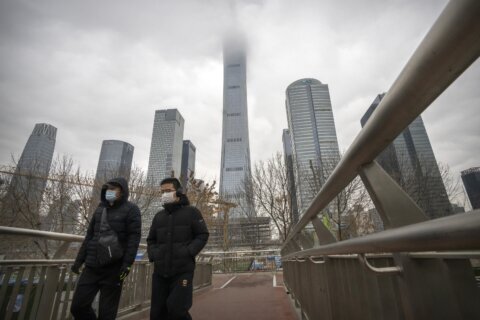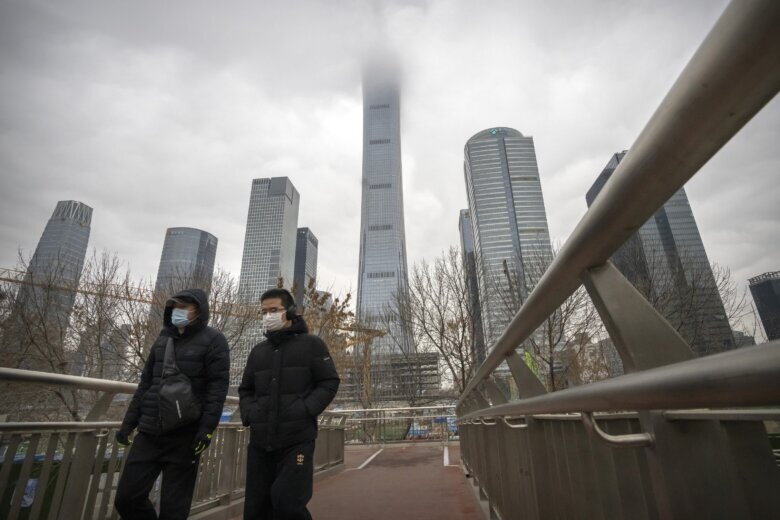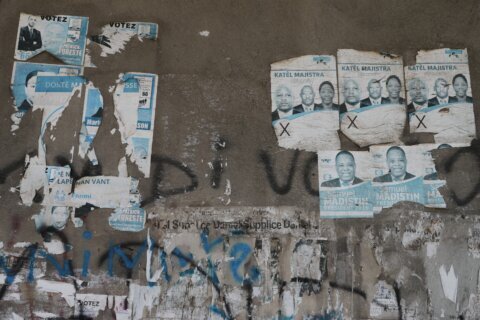
China has admitted that the Beijing Winter Olympics could bring “Covid-19 cases or small clusters of infections” as “a large number of overseas personnel will gather, causing a very high risk of transmission,” an official said at the State Council’s press conference on Thursday.
The Deputy Director of Epidemic Prevention and Control Office of Beijing Winter Olympic Organizing Committee, Huang Chun, said that China is fully prepared for possible Covid-19 infections inside the Games bubble.
Huang said that Covid-19 infected staff and athletes will not be able to compete or work, and will be sent to a designated hospital or isolation facility depending on whether the patient has symptoms or not.
Symptomatic patients would be discharged after their body temperature returns to normal, respiratory symptoms disappear, lung inflammation is absorbed and they have presented two consecutive Covid-19 tests within 24 hours.
They will then be able to choose whether to participate in the next stage of the competition or return to work, Huang explained.
As for asymptomatic patients, Huang said they will be tested every 24 hours in the isolation facility and released if they present negative results twice within 24 hours.
This includes one negative test within six hours of competition, when they will be able to return to the Olympics “with some restrictions.”
Huang added the Organizing Committee also introduced policies regarding close contacts of positive cases.
Affected athletes will have to lodge and eat separately from other participants, commute between their residence and stadium in special vehicles, take Covid-19 tests twice daily, and will be able to compete “under some conditions” if their tests come back negative.
‘Line of defense’
Huang said the Committee and Chinese people were “very concerned” about the possible impact of potential Covid-19 cases inside the Olympic bubble on China’s wider society.
“Our line of defense will prevent infections from spreading to the city, and we should hold this line especially regarding the highly contagious Omicron,” Huang said.
Han Zirong, Vice President and General Secretary of Beijing Winter Olympic Organizing Committee, added that Covid-19 cases had been found among athletes before boarding and at airport customs upon entry for test events since October.
Han said those infected were put into quarantine and their close contacts were allowed to train and compete under strict protection — some of whom even won gold medals.
“Even when Covid-19 cases did occur, we handled it effectively and there was no spread of the disease. It is fair to say that the epidemic prevention policies have been well received,” Han said.
NHL withdrawal
The organizing committee’s admissions and guidelines on the virus follow the National Hockey League’s announcement that it’s players would be opting out of the Games.
The NHL announced on Wednesday that it will withdraw because of the “regular-season schedule having been materially disrupted as a result of increasing COVID cases and a rising number of postponed games.”
“”Unfortunately, given the profound disruption to the NHL’s regular-season schedule caused by recent COVID-related events — 50 games already have been postponed through Dec. 23 — Olympic participation is no longer feasible,” NHL Commissioner Gary Bettman said in a statement.
On Thursday, officials from the organizing committee expressed their “regret” at the NHL’s decision in light of the “reassuring” Covid-19 prevention and control measures in place for the Games.
Huang added that such measures will “certainly reduce the risk of the spread of the infections” and “protect the health and safety of athletes and other personnel.”
The-CNN-Wire
™ & © 2021 Cable News Network, Inc., a WarnerMedia Company. All rights reserved.








